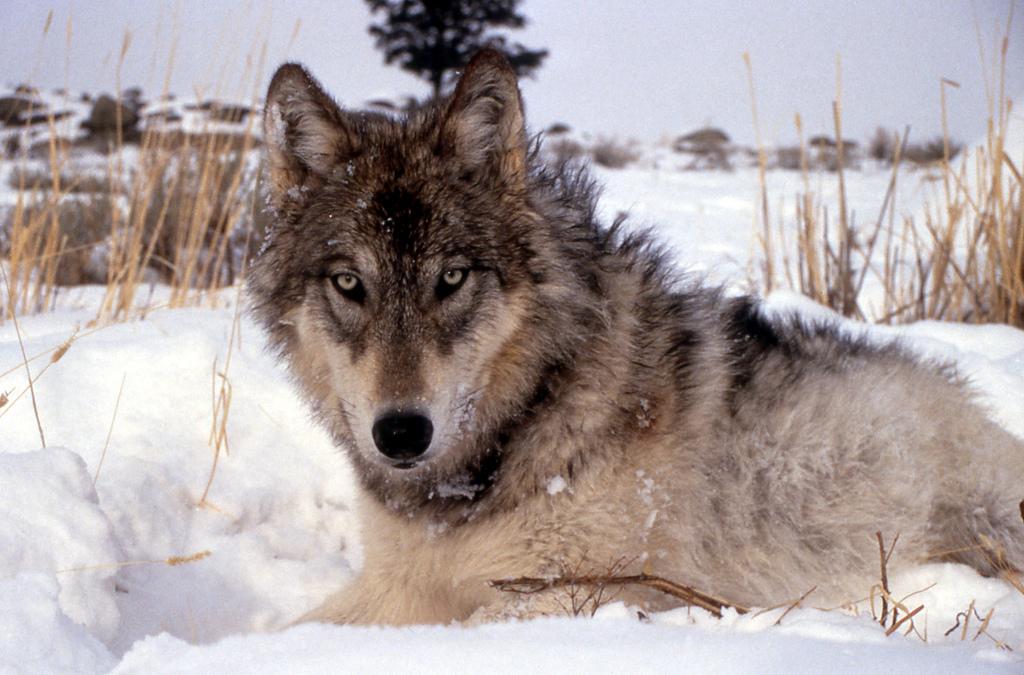
Most gray wolves in the lower 48 states lost Endangered Species Act protections in 2020.
U.S. Fish and Wildlife Service
A federal judge heard oral arguments Friday in a lawsuit challenging the removal of Endangered Species Act protections for most gray wolves, including those in Oregon.
Attorneys representing a coalition of environmental groups attempted to sway U.S. District Judge Jeffrey S. White to restore federal protections for wolves as states like Idaho, Montana and Wisconsin sanction massive hunts that face their own legal challenges.
“We’ve already seen this year, clearly, what can happen to wolves if they lose those protections,” Natural Resources Defense Council attorney Frank Sturges told the court.
Federal attorneys countered that gray wolf populations — as well as the patchwork of state and tribal laws to manage them — are stable and resilient enough to shield the animals from extinction.
“The [U.S.] Fish and Wildlife Service is not trying to skirt its obligations under the Endangered Species Act,” said U.S. Department of Justice attorney Michael Eitel, who was arguing on behalf of the federal government.
Related: When have gray wolves actually recovered?
Gray wolves have a historical range spanning almost all of North America, but were hunted, trapped and poisoned to the brink of extinction across much of it. The canids earned Endangered Species Act protections in the 1970s and have been on a slow march to recovery since then.
Wolves’ numbers are now strongest in the Great Lakes and Northern Rocky Mountain regions of the U.S. Gray wolves in the latter region — which encompasses all of Wyoming, Montana and Idaho, and portions of Oregon, Washington and Utah — lost federal protections in the 2010s.
The Fish and Wildlife Service now says “colonizing wolves” roaming western Oregon, western Washington and other states are no different from Northern Rockies wolves and, thus, don’t qualify for protection.
The agency also says Great Lakes wolf populations are “strong and stable,” warranting the removal of Endangered Species Act protections.
Related: Researchers cast doubt on whether killing wolves actually works
Environmental groups have accused the Fish and Wildlife Service of scientific and legal gymnastics. Attorney Kristen Boyles with the environmental law firm Earthjustice said during Friday’s hearing the agency has taken a “shortcut” to remove protections for gray wolves.
The plaintiffs have urged Judge White to vacate the Fish and Wildlife Service’s decision and restore Endangered Species Act protections for the gray wolf. White is likely to rule on the case within the next month.
Several of the same environmental groups have separately filed petitions for the federal government to add gray wolves to the endangered species list again.


